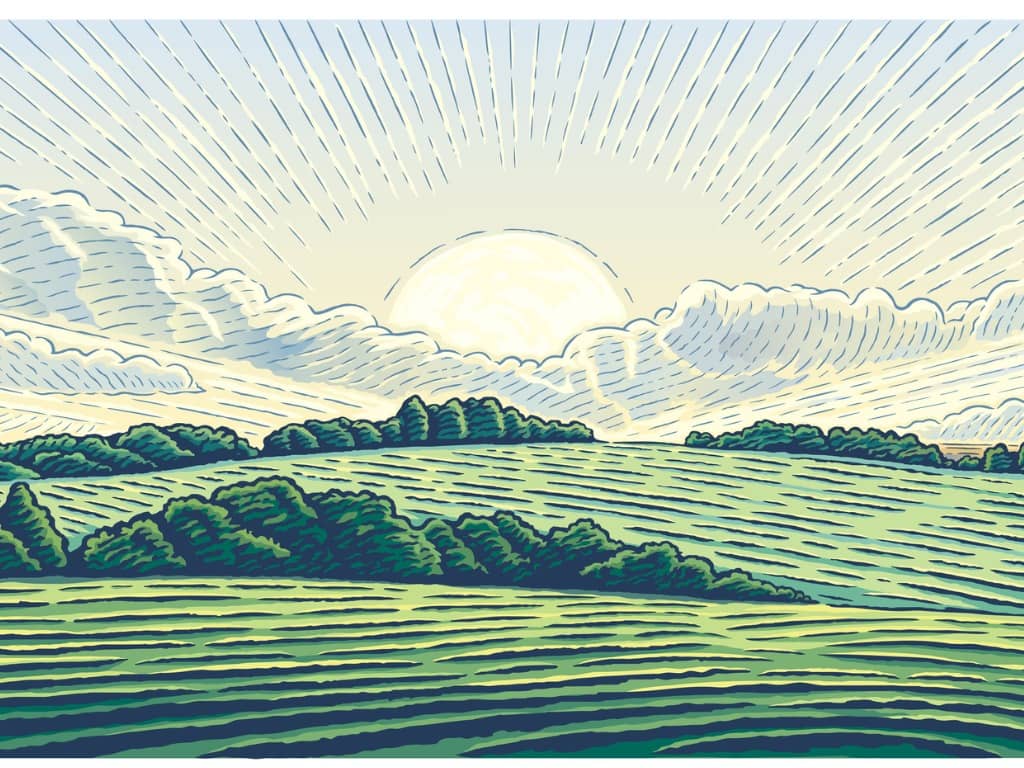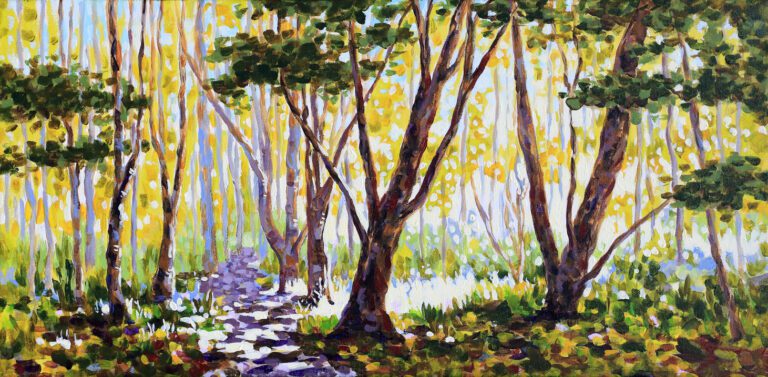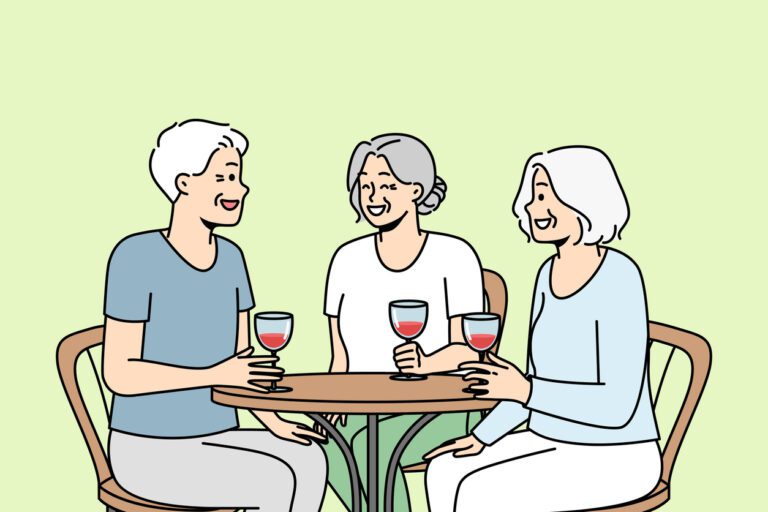Down the end of the garden path was the lavatory, the WC, or when we were out of our parents’ earshot – the dunny. Inside was a dark home to spiders with their curtains of webs, fierce creepy-crawlies and occasionally a wētā.
It was a typical dunny with a well-worn wooden seat, a hole in the middle, a strong smell of disinfectant and the inevitable bumbling blowflies buzzing around. Squares of old newspapers tied together with string hung on a nail on the wall.
“The Times are hard and The Truth hurts,” Dad used to say, and Mum never failed to laugh. My big brother, Jim and I joined in.
When we were children, the dunny was a place to spend as little time as possible. Or that’s what I tried to do. It didn’t seem to worry Jim. He found it a good hiding place when it was time to do the dishes, or if he wanted to read a comic instead of doing his homework. I never really got over my apprehension whenever I had to pay a visit so I was in and out as quickly as I could. But it was what we were used to, the way of life on a farm.
When I was in my teens, Dad installed a proper flush toilet in the corner of the washhouse, next to the copper. We thought we’d really made it then. No more treks down the garden path for us. And wonder of wonders, we had proper toilet paper.
“A real toilet at last,” Mum said, smiling as if she’d won the Art Union.
Then we grew up. Jim was the first to leave home. He got a job in Auckland and went flatting. Two years later it was my turn to leave. I moved to Ardmore to train as a teacher. Once I finished my course and had worked off my bond I was ready to pack my bags.
“Anne is going Home,” my mother told her friends. “Back to the Old Country.”
“Home? What do you mean?” I asked, knowing that my parents and their parents before them had been born and bred in New Zealand.
But England was where their roots were. My roots too of course, but I didn’t see it that way. England was where the fun was. It was where all young New Zealanders headed, to explore the big wide world, to cram into crowded flats in London, to drink Baby Chams or tepid beer in English pubs, to rocket around Europe in rattly old vans, to party in Spain, to sleep on the beaches of Greece, to meet handsome Italians … It was a world foreign to my parents’ generation, but they wished they’d had the opportunity to travel the globe when they were young. Instead, they spent their youthful years scrimping and scraping through the Depression and struggling through the war, then bringing up children in a rapidly changing world.
The family drove into the city to see the boat sail. Mum clung to me as if she never wanted to let me go. Dad snorted into his handkerchief, and even Jim gave me a big hug. The band played Now is the Hour and streamers snapped as the ship pulled away from the wharf. I leant over the rail waving and waving. The ship gave a long mournful hoo-oot as it steamed into the Hauraki Gulf. Mascara trickled down my cheeks as I dabbed at my eyes with a hanky. I knew it would be a long time before I saw any of my family again.
London was exciting. Friends came and went. Some stayed and married – a Spanish waiter, an Italian chef, an Irish journalist, a Canadian doctor … Some, like me, married an English accountant, an important man of The City. And so England became my home. It was like living in two worlds; one new and exciting, and for me, sophisticated. The other life that pulled and tugged was my old life back in New Zealand. Sometimes, as I supervised my children playing in the park at the corner of our street, I thought with nostalgia of my carefree childhood. But the English way of life was now my way of life and it was quite different to my Kiwi farming background. I had two bright children, au pairs, a handsome husband, a large house in Kensington, an account at Harrods, a cottage in Wales, holidays abroad …
Our milk didn’t come in billies from the cowshed, but arrived on our doorstep in cartons. My children didn’t ride to school on rattly old bikes, skidding through the loose metal and grinding to a halt at the school gate. They travelled to their destination by Tube. There was no long trek for them down the driveway to check the letterbox. Our mail arrived while we were eating breakfast – blue airmail letters from New Zealand – or bills – plopping into the basket inside the front door. My children had the latest fashion in clothes, not hand-me-downs. For them, Christmas dinner wasn’t a picnic of cold ham and salad under the pōhutukawa trees. Their Christmas was spent eating hot turkey and plum duff, pulling crackers, and unwrapping the latest toys and gadgets.
There was no braving wētās and spiders in an outdoors dunny for them. Nor was there swimming in the sparkling Waitematā Harbour or rowing an old dinghy in the bay. There was no digging in the rotted trees trunks for huhu bugs. No fishing for eels in the creek. No chasing flounder in the shallows at dusk. No listening to moreporks crying mournfully in the dark. No bonfires on the beach …
Over the years I made frequent trips home to visit family and friends. Sometimes my husband and children came with me. They seemed to enjoy the different lifestyle for a while, but I could see that after the first week the novelty began to wear off.
What did my children know about climbing trees, running barefoot across the paddocks, swimming in waterholes in the creek, fishing for sprats from the wharf? Their English winter skin burned and freckled. Their tender feet blistered from the hot sand.
They stubbed their toes as they clambered over rocks. Their Kiwi cousins were amazed at their naivety and their fancy Public School accents. My children struggled to keep up with their boisterous cousins; their Kiwi slang; their rough and tumbles. They were bewildered at the freedom the other children had to come and go, ranging far and wide across the farm and nearby beaches. Sandflies bit them, and whining mosquitoes plagued them.
As they grew older my children made excuses not to accompany me on my journeys home. They had a school trip to France, or they had to study for their exams, or they were joining a ski party in Klosters … My husband too, was finding the long trip to the other side of the world often clashed with his work, or he had a conference to attend in Berlin, or in Prague, or Manchester … I sometimes wondered how important they really were. And who accompanied him on these trips? He seemed to tell me less and less as time went on.
Years passed, as they have a habit of doing when you’re not looking. While I was becoming a proper Kensington wife and mother, my parents were growing older. The farm on the upper reaches of the Waitematā Harbour was sold. Jim had shown no interest in a farming life, and nor had any of his family – or mine. I flew home to help with the shift, packing our treasures and our memories into cartons and boxes. It was sad seeing the old house empty, knowing the next time I came home the house would have been shifted – or, worse still, demolished. By then my children had left their comfortable English nest. My husband was considering taking early retirement. What would he do then – and me? How would my role change? I flew home to London, but I felt restless, stateless and uncertain where my life was heading.
******
“Can you come home?” my brother said when I answered the phone. “Dad is asking for you.”
This was what I had been dreading. My Dad was ill.
“Of course you have to go,” my husband said, but made no offer to come with me.
I realised then that he’d moved on. He had other interests that didn’t fit with mine – and other friends. We had drifted apart.
The children, if you can call them that now they were both in top jobs in The City, came to see me off. I cried and clung to them as if I never wanted to let them go.
My husband kissed me goodbye but I felt it was more of a duty than of a genuine emotion. Mascara trickled down my cheeks as I dabbed at my eyes with a hanky.
“Give our love to Granddad,” the children said, as if he was someone of no great importance to them.
As I flew into Auckland over the blue seas and the familiar green landscape I knew I was coming home to where I was needed. To where I belonged. Mum clung to me as if she never wanted to let me go. Dad was sitting up in bed snorting into his handkerchief.
“I knew you would come,” he said.
And I knew this was truly my home. I had been playing at being a good English wife and mother, but I wasn’t needed there any more.
This was where I was needed. This was where I wanted to be.
“Isn’t it funny,” Dad said. “Remember how we used to go to city? Now the city has come to us.”
I knew what he meant. Each time I came home, the city had crept further north.
Like a voracious monster it nibbled at an orchard here, swallowed farmland there, and now with one convulsive gulp the last of the green paddocks had been devoured. Our little bit of rural paradise, jutting out like a slender finger into the Waitematā Harbour, was the last to feel the fetid breath of progress.
“I bet you’re thrilled you kept this little corner of the farm,” I said as I gazed out the window of my parents’ retirement home.
“Yes,” Mum agreed. “We would’ve hated to have had to move away from here. And I’m glad Jim managed to secure his section before someone else swooped on it.”
Since I’d last been home Jim and his wife had sold their house in the city and built a mansion in the midst of the other mansions where our farm cottage had stood.
Dad told me Jim had a pergola just where the old dunny used to be, so he can sit and read his newspapers in peace.
Perhaps he still sneaks the odd comic out there for a quiet chuckle, or hides there when it’s time to empty the dishwasher. I must ask him when I see him.
“And would you believe it?” Dad said as he described Jim’s new house. “He has not one, not two, but THREE toilets … He must be flushed with success.”
“Oh, The Times are hard,” I said.
“And The Truth hurts,” Dad replied.
And we laughed and laughed until the tears ran down our cheeks.
Author: Bev Wood
Bev is a Hamiltonian with interests that include reading, writing, travelling, walking, talking, wining and dining. She is a collector of words and sayings and finds other people’s views fascinating. She loves playing around with words and imagining other lives. She’s written poetry, short stories, and stories for children, and hopes people enjoy her writing as much as she enjoys creating it.







